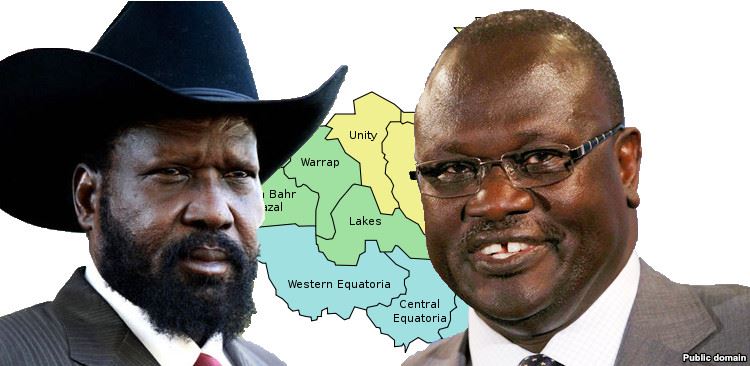

Clearly the Compromised Peace Agreement is in tatters and there is an urgent need to address the key shortcoming of the agreement and in particular for IGAD mediators to consider the meaningful inclusion of diverse voices from South Sudan both political as well as from Civil Society.


In 2015, during the negotiation of the Compromised Peace Agreement in Ethiopia, Senior Generals and Politicians from the SPLM-IO were already dissenting and defecting from SPLM-IO and accusing rebel leader Riek Machar of poor leadership because of provision of the Compromised Peace Agreement.
At the time, General Peter Gatdet, a hardliner famous for the capture of Bor in the aftermath of December 2013, was one of the early defectors who rejected the proposal for the formation of Transitional Government that included both President Salva Kiir and Riek Machar and consequently vowed to fight both sides. At the time the significance of Gatdet’s defection was downplaid by SPLM-IO.
In August 2015, prior to the singing of the Compromised Peace Agreement, the South Sudan Federal Democratic Party/Soth Sudan Armed Forces (FDP/SSAF) broke away from the Riek Machar lead Sudan People Liberation Movement – In Oppositions (SPLM – IO). The chairman and commander in chief of FDP/SSAF is H.E. Gabriel Changson Chan, is the former Minister of Youth, Culture and Sports.
The FDP has an armed wing called South Sudan Armed Forces (SSFA) initially lead by General Peter Gatdet. However by April 2016 there was a formal separation between FDP and General Peter Gatdet as the latter had formed the National Defence Alliance (NDA). During the same period, reflecting the fluidity and complexity of South Sudan politics, the FDP suffered the defection to the Government of Gen. Gathoth Gatkuoth, Gen. James Malith Gatluak and Brig. Gabriel Gatwech Puoch.
During the negotiation of the Compromised Peace Agreement and in particular in August 2015, matters were not much better on the Government side. Because of these tensions and dissentions, President Salva Kirr signed the Peace Agreement, with reservations on 26 August 2016, almost 2 weeks after the document had been signed by Dr Riek Machar (SPLM-IO) and Mr Pagan Amun – the reinstated Secretary General of the SPLM South Sudan who signed on behalf of the former detainees – a group of high ranking politicians briefly jailed in the aftermath of the events of December 2013.
During an interview given to the Sudan Tribune on 11 February 2016, HE Gabriel Changson Chan stated:
“……. Depending on the peace agreement as the basis of the Transitional Government of National Unity ( TGoNU) without constitution will lead to failure in the implementation of the peace agreement. “
“The agreement will be dead as soon as the First Vice President takes oath of office as the First Vice President
“The President will then govern the country with un –amended constitution and shall have the liberty to appoint and dismiss the First Vice President and the cabinet minister because there will be no constitutional protection for them.
In April 2016, Dr Riek Machar finally arrived in Juba and the Transitional Government of National Unity (TGoNU) was formed. Though people wanted to hope for the best, the general feeling in Juba was that the formation of the TGoNu had simply reset the country in the same position as it was in 2013 with the same players and tensions in place.
Earlier this month, fighting reminiscent of December 2013 erupted in Juba, causing more than 300 deaths, and the displacement of over 30,000 people in Juba. In Addition the fighting was not restricted to Juba as almost simultaneously armed clashes were reported in Wau, Torit, Bentiu, Lainya, Yei , Kajo Keji. Though it is not possible to say that there was a deliberated coordination it is clear that there was a widening of the conflict throughout South Sudan.
Thought the ceasefire in Juba is most welcome, it is disturbing that:
On 14 July 2016, I interviewed HE Gabriel Changson Chan, former Minister of Youth, Culture and Sports and present chairman of the Political Committee of the Federal Democratic Party (FDP) and commander in chief of the South Sudan Armed Forces (SSAF). He explained that recent events in South Sudan clearly demonstrate that the compromised Peace Agreement is very weak and that there are no safeguards to ensure its viability and implementation. The mistrust and antagonism between President Salva Kiir and Dr Riek Machar is such that it is not possible for the two personalities to work together in particular in light of the fact that both expect to contest the 2018 elections. Changson claims that during the negotiation phase of the Compromised Peace Agreement IGAD was informed of the concerns about the ability of President Kiir and Dr Riek Machar to overcome their mutual antagonism, however such concerns were ignored .
Such stabilisation action would then support: The process of reconciliation in the country and in particular the:
H.E. is of the view that in the event that IGAD and partners fail to take immediate action to stop the fighting, maintain law and order and support the setting up of a truly inclusive Transitional Government of National Unity ( TGoNU), the current conflict will expand as the South Sudanese People will look to take such action as they deem necessary to protect their rights.
Makeda Saba
makedasaba@ymail.com
Speciale per Africa ExPress Cornelia I. Toelgyes 9 gennaio 2025 Ieri sera, poco prima delle…
Speciale per Africa ExPress Fabrizio Cassinelli* 8 gennaio 2025 Si avvia all’epilogo il caso –…
Questo articolo è stato pubblicato prima che si sapesse della liberazione di Cecilia Sala Speciale…
Africa ExPress 6 gennaio 2024 Non ha peli sulla lingua, Muhoozi Kainerugaba, capo dell'esercitodell’Uganda e…
Africa ExPress 5 gennaio 2025 Migliaia di residenti sono stati evacuati dal governo etiopico a…
Speciale per Africa ExPress Federica D'Alessio* 3 gennaio 2025 Per il 2025, Israele ha stanziato…